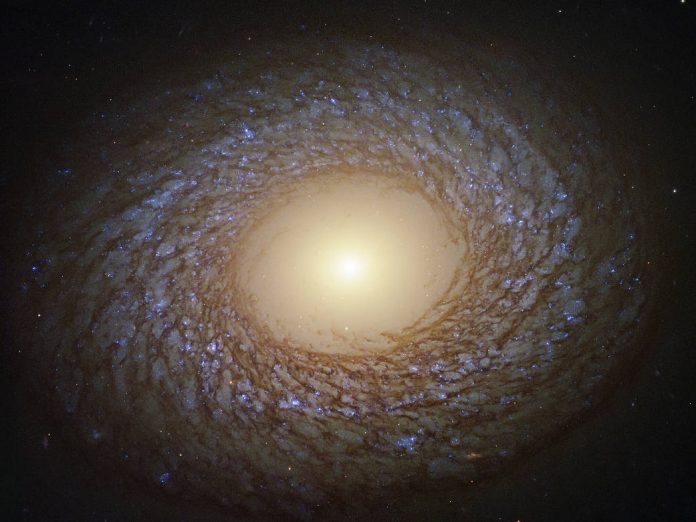The Hubble Space Telescope has the knack for finding every size and shape of galaxy imaginable – from small, medium to large, all the way up to that funky size of absolute units.
This unusual galaxy, named NGC 2775, is incredibly fluffy-looking, or flocculent. It’s definitely a spiral, but instead of well-defined, organized spiral arms, it’s just a big fluff-ball of stars.
It belongs to the Antilia-Hydra Cloud of galaxies and is the main member of a small group of galaxies called the NGC 2775 group.
Also known as LEDA 25861 or UGC 4820, NGC 2275 has a diameter of 80,000 light-years and is classified as a flocculent spiral galaxy.
“NGC 2775’s ‘flocculent’ spiral arms indicate that the recent history of star formation of the galaxy has been relatively quiet,” Hubble astronomers said.
“There is virtually no star formation in the central part of the galaxy, which is dominated by an unusually large and relatively empty galactic bulge, where all the gas was converted into stars long ago.”
“Millions of bright, young, blue stars shine in the complex, feather-like spiral arms, interlaced with dark lanes of dust,” they noted.
“Complexes of these hot, blue stars are thought to trigger star formation in nearby gas clouds.”
“The overall feather-like spiral patterns of the arms are then formed by shearing of the gas clouds as the galaxy rotates.”
“The spiral nature of flocculents stands in contrast to the grand design spirals, which have prominent, well defined-spiral arms.”















